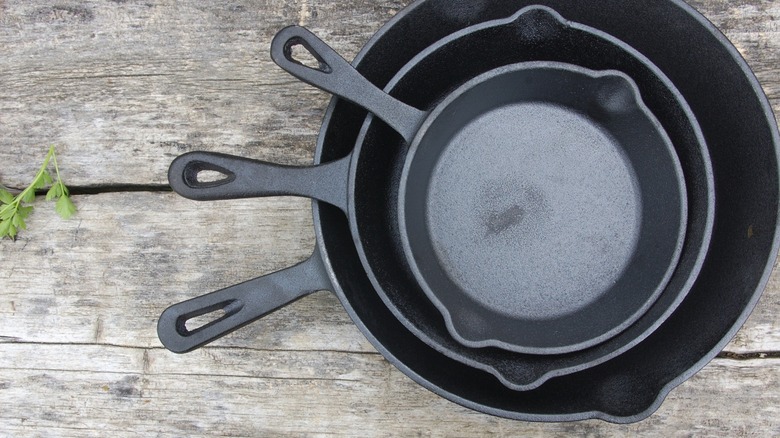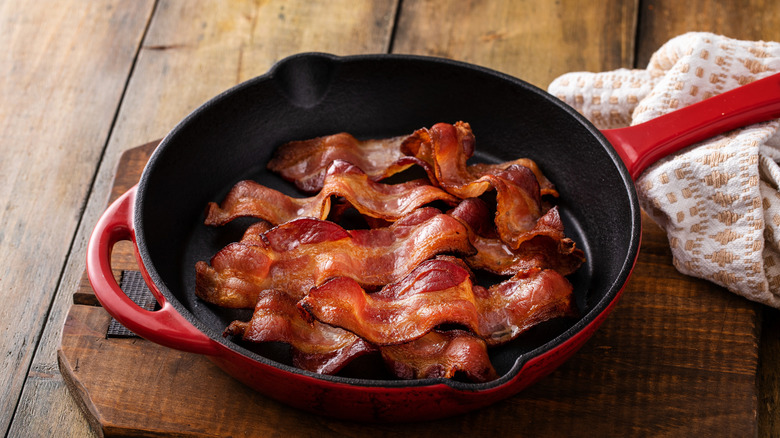Is It Safe To Use Cast Iron On Glass Top Stoves?
Given how careful you have to be to avoid scratches when cleaning a glass stovetop, it's natural to wonder whether or not it's safe to use a heavy cast-iron pot or pan on them. And it is, but there are precautions you have to take to avoid damage. For instance, heavy cast iron must be set down gently. If you drop it or place it carelessly, it can scratch the surface at best or crack the stovetop at worst.
Moreover, because many modern cast-iron pans have a rough exterior, you can't shimmy or scoot your cast-iron cookware around on a glass stovetop because it can scratch the surface. While small scratches won't compromise the cooktop, they can impact its appearance. Opting for ceramic-enameled cast iron can help on that front, but the pans are still heavy, and you just have to know how to use them properly to avoid damaging your glass-top stove.
How to safely cook with cast iron on a glass-top stove
One of the biggest myths about cast-iron skillets is that you have to put them in storage if you have a glass cooktop. Instead, there are a few key things you can do to minimize or eliminate the risk of damage. One of the most important is making sure your cast iron is completely clean before using it. And club soda is the secret to cleaning your cast iron if you have any stubborn stuck-on food or gunk. If you don't, it could become carbonized from the heat and leave a stain on your stovetop and pan. While it is possible to remove burned-on food stains with some baking soda and effort, it's best to avoid it if you can.
Cast iron is also notorious for uneven heating, and that can create hot spots that potentially lead to thermal shock, which can damage the stovetop. For this reason, it's best to heat cast iron slowly on a glass cooktop, starting from low and gradually increasing to allow for steadier heat distribution.
Also, keep in mind the cookware you use should be no more than an inch larger than the size of the burner you put it on, max. Otherwise, the very edges of the pot don't get hot anyway. So use the smallest, lightest cast-iron pots or pans you can. To prevent scorching, you should also remove your cast-iron cookware as soon as you're done cooking rather than letting it cool on the stove.

